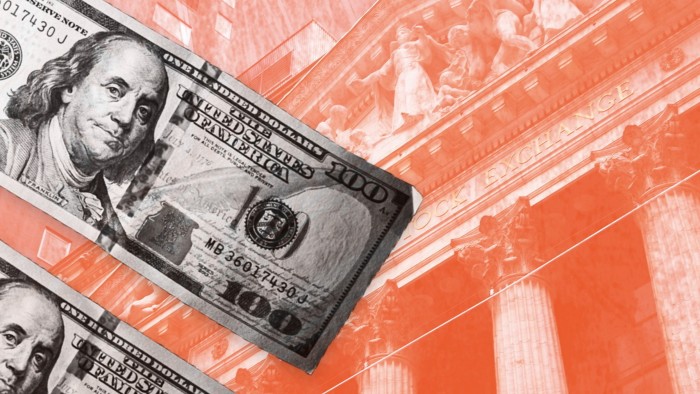Hedge funds including Jeffrey Talpins’ Element Capital and Kenneth Tropin’s Graham Capital Management have made big gains from betting on market swings around last month’s US presidential election.
Element and Graham are among so-called global macro hedge funds — which trade macroeconomic trends in currencies, commodities, bonds and stocks — that have been positioned in “Trump trades”, or assets that did well out of Donald Trump’s election victory.
Element gained about 9 per cent in November, according to a person familiar with the figures, bringing returns so far this year to 19 per cent. The fund had invested in the US dollar and equities, both of which soared after the election result, and bet against European stocks, which struggled, the person added.
Meanwhile, Graham, which manages about $19bn in assets, made around 3 per cent in November in its Proprietary Matrix fund, said a person who had seen the numbers. That takes returns for the fund, which includes strategies run by fund managers and computer-driven ones, to 8.7 per cent this year.
Ahead of the election, “we had a bias towards the so-called Trump trades, not because we have any political inclining, but because we thought that that was the most likely”, said Pablo Calderini, Graham’s chief investment officer.
“When you just go through the list of all the things that we’re dealing with — the central bank actions, inflation, fiscal policy, geopolitics — it’s a very interesting macro environment,” he added.
The dollar’s strength — it is up 5.4 per cent against a basket of currencies since the start of October — has been a big driver of investors’ returns in recent months.
Along with rising stocks, a rocketing bitcoin price and rising US Treasury yields, Trump trades kicked in ahead of the election as the Republican candidate’s chances of winning appeared to improve, and then in many cases gathered pace on the result.
Some funds have raked in even bigger returns. Castle Hook Partners, which was started by David Rogers and counted macro investing pioneer Stanley Druckenmiller as an early backer, has made about 60 per cent this year, according to a person close to the fund. Since the election, the $4.4bn fund has invested in the dollar and bet against US fixed-income assets.
PointState Capital, which oversees $5.5bn and trades a range of assets, was up 44 per cent this year, according to a person familiar with the matter. Like Castle Hook, Druckenmiller was an early investor.
The fund had made the majority of its returns betting on US equities, including artificial intelligence and power stocks, and had been long the dollar since the election, according to the person. It has also done well this year trading copper, a closely watched barometer of global economic strength that surged more than 30 per cent to start the year but has since fallen back.
Castle Hook, PointState and Element declined to comment.
Macro hedge funds — a decades-old strategy made famous by the likes of George Soros and Louis Bacon — profited handsomely during the 2007-08 global financial crisis. But in many cases they struggled during the subsequent period of ultra-low interest rates as global monetary policy converged, removing some of their most attractive trades.
The collapse in 2013 of FX Concepts, one of the world’s largest currency hedge funds, and losses chalked up in 2015 and 2017 by Brevan Howard, once seen as the gold standard of macro investing, made some investors wonder if the halcyon days of making bold currency or bond bets were over.
Funds such as Brevan and Chris Rokos’s Rokos Capital have since posted strong periods of performance, helped by big moves in global interest rates and bond markets.
However, Element, which had one of the sector’s best long-term records, suffered a bout of poor returns starting in 2021, the Financial Times has reported. Last year it looked to shrink its $12bn in assets under management by temporarily relaxing its redemption terms, and it now manages $5.6bn, according to the person familiar with Element.
The week of the presidential election was particularly intense for Graham. “It was a very heavy week from a risk management standpoint,” said Calderini. The hedge fund ran “many scenarios” and “stress tests” to make sure “we were prepared for shocks that might not only be associated with Trump winning, but a very close election with a heightened social climate”.
The firm believes the dollar would only continue to strengthen against other currencies, said Calderini.
While recent market trends have been helpful for macro funds, there was a risk that Trump’s policies on tariffs and immigration could be inflationary, analysts have warned, which could keep rates elevated and hit financial markets.
“The question is: if and when Trump blows something up, are the macro hedge funds on the right side of that trade as well?” said Steven Kelly, an associate research director at the Yale Program on Financial Stability.
Read the full article here




